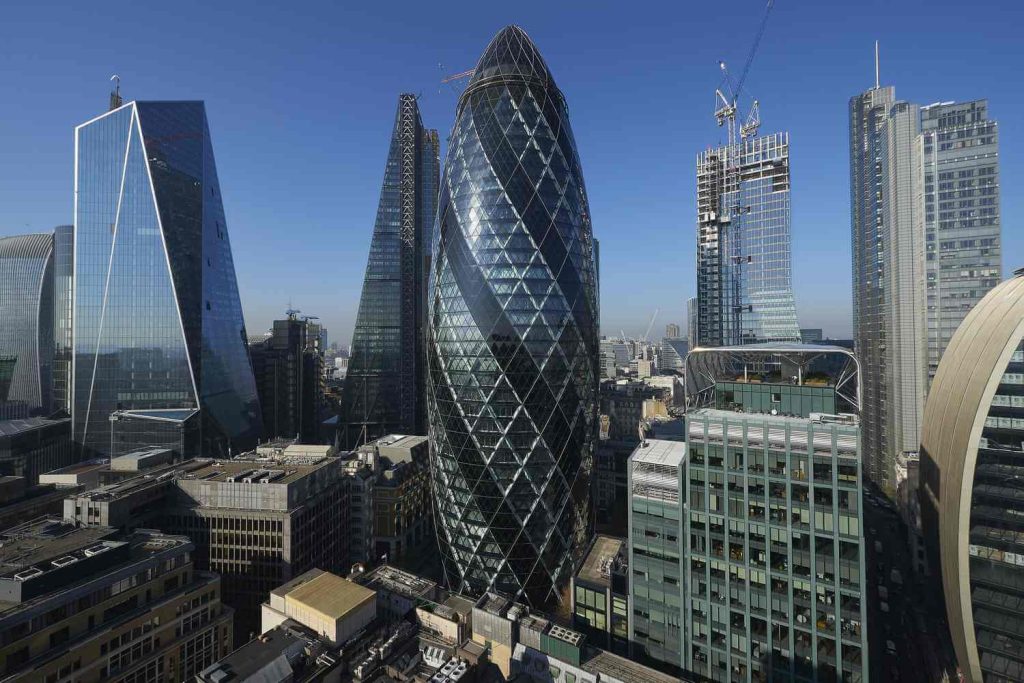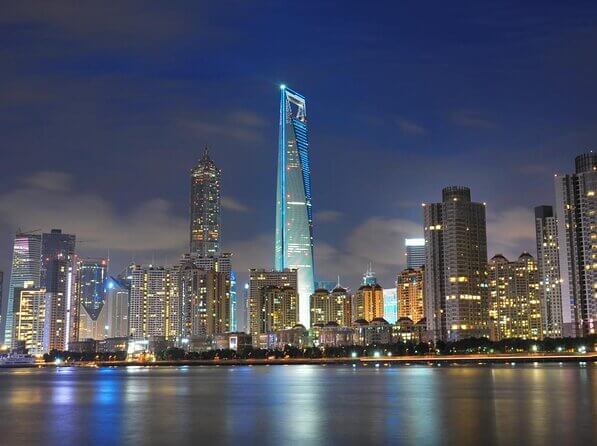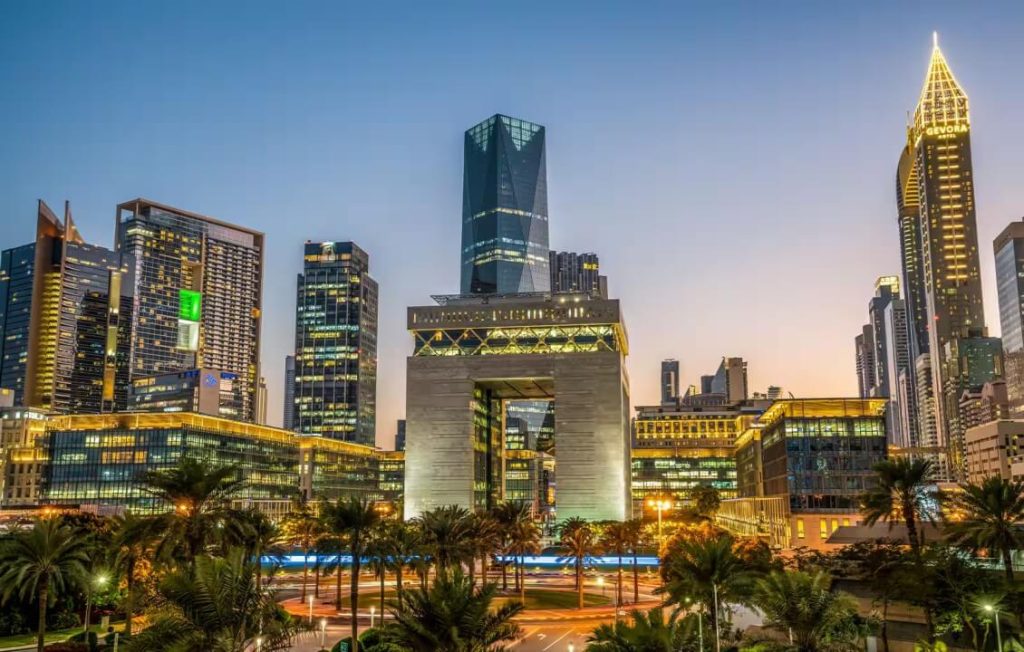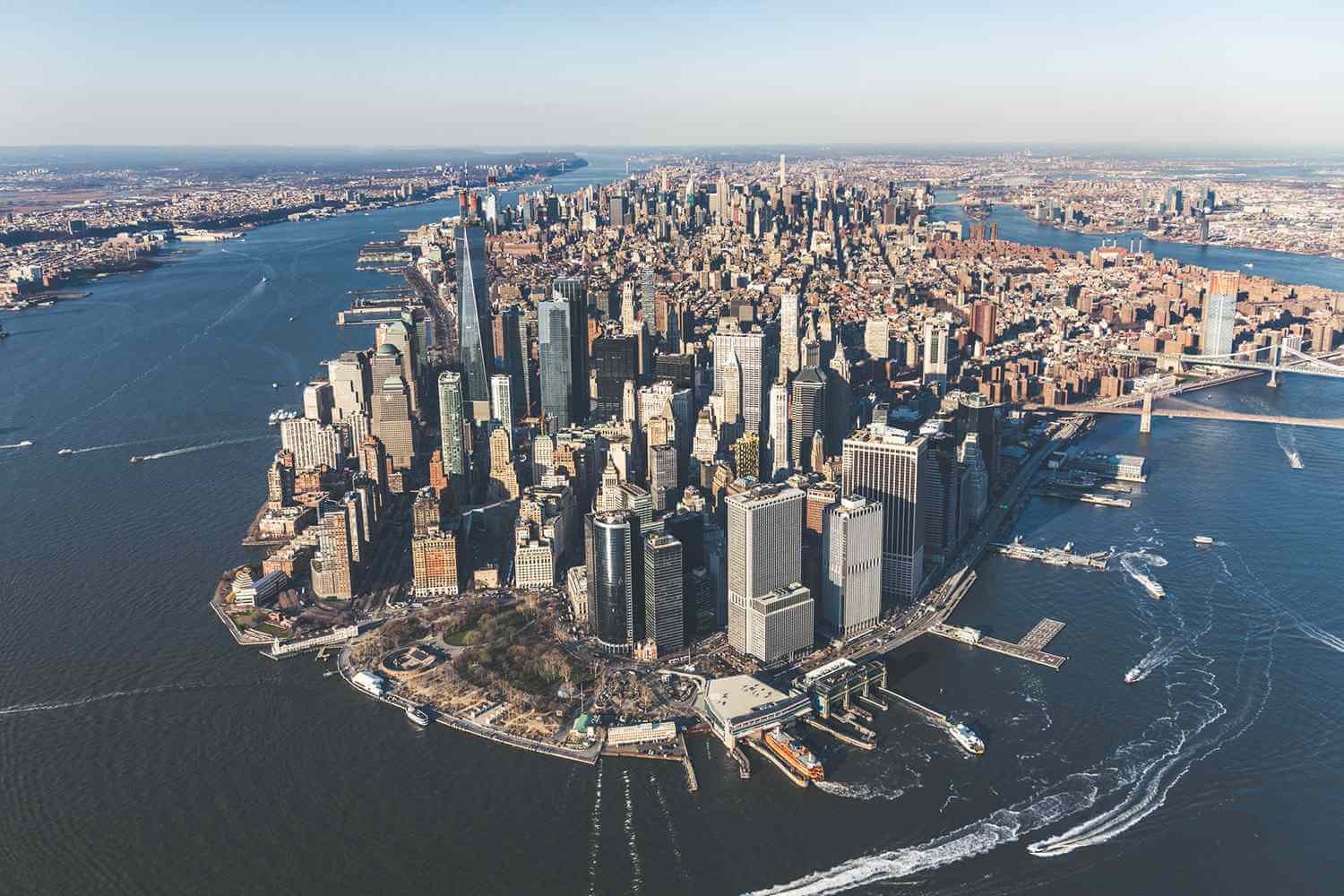The term “global financial centers” encompasses a range of urban areas, cities, territories, and sometimes entire countries where the business life of a region is concentrated. These hubs are home to large business centers, the headquarters of the world’s largest corporations and banks specializing in transnational financial transactions, luxury hotels, renowned restaurants, and boutiques of famous brands. Major transport flows converge in these areas, leading to bustling environments filled with people and vehicles. Here, we explore some of the most significant global financial centers shaping the world’s economy, including the opportunities for business setup in Dubai.
New York: The Financial Heartbeat of the World
New York City is not only one of the most famous and largest financial centers in the USA but also globally. Alongside London and Tokyo, it is one of the three primary centers responsible for the global economy. New York hosts the largest and most liquid stock markets, such as the New York Stock Exchange (NYSE) and the Nasdaq. The headquarters of financial giants like Morgan Stanley, American International Group (AIG), Goldman Sachs Group, and Merrill Lynch are situated in this metropolis, making it a crucial player in international finance.
Key Features of New York’s Financial Center:
– Stock Markets: The NYSE and Nasdaq are two of the largest stock exchanges in the world, offering immense liquidity and trading volume.
– Financial Institutions: Home to major banks and investment firms, including JP Morgan Chase, Citigroup, and Bank of New York Mellon.
– Global Connectivity: As a global transport hub, New York connects to financial centers worldwide, facilitating international business.

London: The Financial Hub of Europe
London consistently ranks among the top three global financial centers. The capital of the United Kingdom was the first European city to transition to an economic model driven by the rapid development of the service sector. It houses the offices of major multinational corporations such as Corus Group, Royal Dutch Shell, Cadbury, Unilever, and SABMiller. The London Stock Exchange (LSE) and the Bank of England are also located here, reinforcing London’s status as a vital financial hub.
Key Features of London’s Financial Center:
– Historical Significance: London has a long history as a global trade center, with the Royal Exchange established in 1571.
– Diverse Market: Hosts a wide range of financial services, including banking, insurance, asset management, and legal services.
– Regulatory Framework: The Financial Conduct Authority (FCA) ensures a stable and transparent financial environment.
Tokyo: The Economic Powerhouse of the East
Tokyo, the capital of Japan, is a major financial, cultural, and industrial hub for the entire eastern region. Officially recognized as the most developed urban agglomeration on the planet, Tokyo hosts numerous large banking and financial institutions, technology corporations, investment funds, and analytical agencies. Notable entities include Mitsubishi UFJ Financial Group, Nomura Holdings, and the Tokyo Stock Exchange (TSE). Tokyo’s advanced infrastructure and innovative economy highlight its critical role in global finance.
Key Features of Tokyo’s Financial Center:
– Technological Integration: Tokyo leads in integrating technology with financial services, fostering fintech innovation.
– Global Reach: Many Japanese firms have significant global operations, contributing to Tokyo’s international influence.
– Government Support: Policies and initiatives support financial sector growth and stability.

Shanghai: A Rising Financial Titan
Shanghai’s transformation from a fishing village a century ago to one of the world’s top financial centers is remarkable. Today, it is among the five most significant financial hubs globally. Shanghai fosters connections in trade, industry, and financial activities with other cities and countries. The Shanghai Stock Exchange (SSE) and numerous multinational corporations, including China Construction Bank and Industrial and Commercial Bank of China (ICBC), are headquartered here. Shanghai’s rapid development and strategic economic policies contribute to its growing influence.
Key Features of Shanghai’s Financial Center:
– Rapid Growth: Shanghai’s financial sector has expanded rapidly, supported by government reforms and foreign investment.
– International Trade: As China’s main trade hub, Shanghai plays a crucial role in global trade and commerce.
– Innovation and Technology: The city promotes fintech and innovation, with a growing number of startups and tech firms.
Singapore: The Modern City-State with Financial Clout
Singapore is renowned for its impeccable business reputation, robust banking system, and attractive tax legislation for entrepreneurs. As a highly developed financial center, it boasts a diverse market economy with steady growth across various sectors. Key institutions such as DBS Bank, Oversea-Chinese Banking Corporation (OCBC), and United Overseas Bank (UOB) are based in Singapore. The city’s strategic location and business-friendly environment make it a pivotal financial hub in Southeast Asia.
Key Features of Singapore’s Financial Center:
– Business Environment: Singapore offers a favorable business environment with low taxes and minimal corruption.
– Strategic Location: Positioned at a major global crossroads, facilitating trade and investment.
– Regulatory Excellence: The Monetary Authority of Singapore (MAS) ensures a stable and transparent financial market.
Hong Kong: The Asian Financial Powerhouse
Hong Kong emerged as a leading financial center in the 1970s and 1980s. The metropolis gained high status due to the rapid development of the banking sector and financial services. Today, Hong Kong hosts over 250 banking institutions, with about 70% of the world’s largest financial and credit institutions having representative offices here. The Hong Kong Stock Exchange (HKEX) and financial giants like HSBC and Hang Seng Bank are integral to its financial landscape.
Key Features of Hong Kong’s Financial Center:
– Open Market: Hong Kong’s free-market policies attract international businesses and investors.
– Connectivity: Excellent transport and communication infrastructure linking Asia with the rest of the world.
– Financial Services: A leading center for banking, asset management, and insurance.
San Francisco: The Financial Hub of the American West
San Francisco is a vital financial center in the United States, hosting the headquarters of major banking organizations such as Bank of America and the Pacific Exchange. The city caters to a diverse clientele, including the middle class, with a range of financial and credit services. San Francisco’s business district is home to numerous banking institutions and leading technology companies from the Fortune 500 list, cementing its role as a financial and technological powerhouse.
Key Features of San Francisco’s Financial Center:
– Tech Integration: Close ties with Silicon Valley foster innovation in fintech and technology.
– Diverse Economy: A robust mix of finance, technology, and healthcare sectors.
– Cultural Hub: A vibrant cultural scene that attracts talent from around the world.

Dubai: The Financial Bridge Between East and West
Dubai’s meteoric rise from a desert landscape to a leading financial, trade, and tourist center in the Middle East is extraordinary. The city is renowned for its towering skyscrapers, luxurious hotels, and upscale restaurants. Dubai’s strategic geographical location makes it a crucial link between the West and the East, serving the growing regional markets of the MEASA (Middle East, Africa, and South Asia) countries. The city’s free economic zones, particularly Jebel Ali, and favorable tax policies attract businesses and investors worldwide. Dubai’s financial sector is supported by agreements against double taxation, fostering a thriving business environment.
Key Features of Dubai’s Financial Center:
– Strategic Location: Positioned at the crossroads of global trade routes.
– Economic Zones: Free zones like Jebel Ali offer tax incentives and business-friendly regulations.
– Tourism and Luxury: A world-class destination for luxury tourism and business events.
Conclusion
These global financial centers play a pivotal role in shaping the world’s economy. Each center boasts unique attributes and strengths that contribute to its status as a financial hub. Whether it’s the bustling streets of New York, the historical charm of London, the technological prowess of Tokyo, the rapid growth of Shanghai, the strategic significance of Singapore, the robust banking sector of Hong Kong, the innovation of San Francisco, or the dynamic development of Dubai, these cities are at the heart of global finance, driving economic growth and connectivity. Their influence extends beyond their geographic boundaries, impacting global trade, investment, and economic policies.

I have acted as a financial expert on the Today Show and Good Morning, America. I like to give reasonable advice on budgeting to people with any income level.
